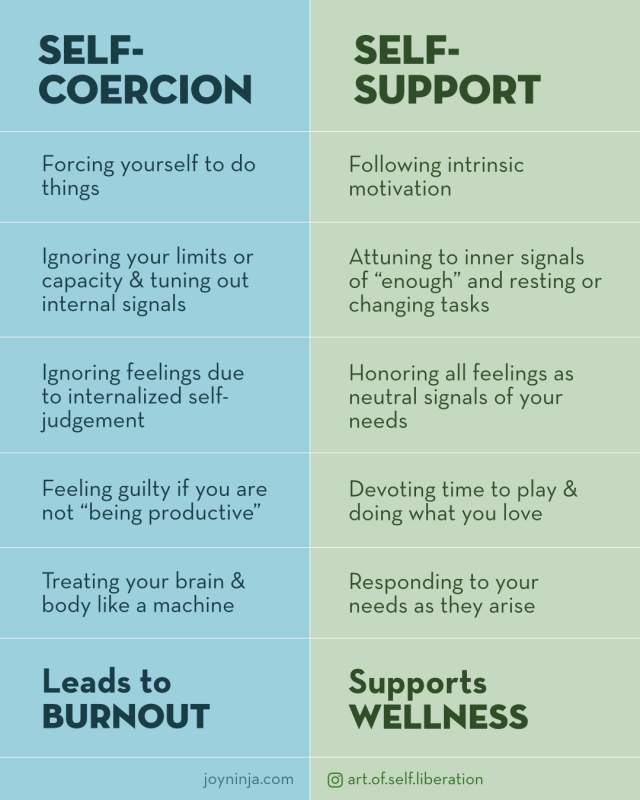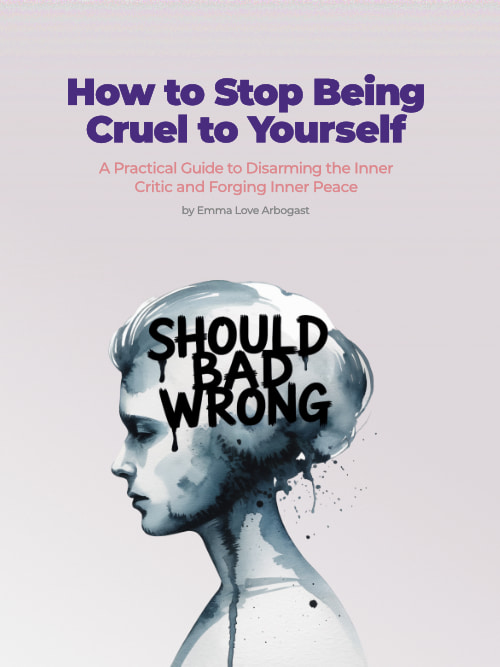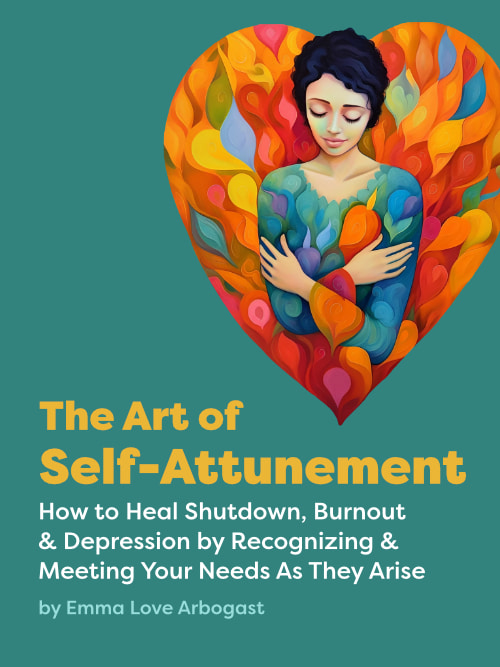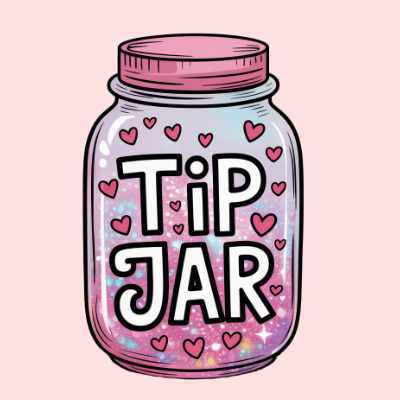What leads to autistic or ADHD burnout?
Burnout in autistic and ADHD people is caused by chronic, cumulative overstimulation that depletes the adaptive capacity of your nervous system.
In other words, more stress than you can handle over a long period of time.
Below are some common sources of that stress.
1. Sustained masking & camouflaging
- Pretending to be fine when you are not (i.e. hiding your distress)
- Chronic inhibition of stimming, natural movement, or emotional expression
- Constant adaptation to neurotypical communication norms in work or relationships
- Performing competence or politeness when you are actually overwhelmed
Burnout from masking comes from long periods of being “on” without relief. This can happen just from “normal” activities like going to school or having a job.
2. High demand + low autonomy environments
- Work, school, or family systems with rigid expectations and no flexibility
- Being expected to function at a consistent level regardless of actual energy
- Having your needs ignored, minimized, or pathologized
- Constant micro-adjustments to survive neurotypical systems
This kind of overstimulation can be non-obvious because it’s structural.
3. Relational overload
- Chronic people-pleasing—meeting the needs of others at your expense
- Repeated boundary violations with no recourse or source of support
- High-conflict relationships
- Co-regulating others constantly (especially emotionally dysregulated people)
- A lack of safe, authentic relationships for a prolonged period
- Being misunderstood or subtly invalidated over and over and feeling you have to fight to be heard
This leads to burnout via emotional resource depletion and relational vigilance—your nervous system is always on alert for potential conflict.
4. Constant work without recovery
- An overwhelming backlogs of tasks that you can never catch up on
- Constant multitasking, context-switching, or juggling too many responsibilities
- No buffer time between obligations
Burnout comes from the constant nagging feeling like you can’t catch up or rest, and so you are always vigilant about what needs to get done and how you are behind.
This is something we can end up doing to ourselves if we have a lot of internalized productivity beliefs.
It can also happen in high-stress jobs that expect more than 40 hour workweeks like law firms or startups, or if we are trying to work several jobs or manage side hustles to make ends meet.
5. Long-term exposure to stressful environments
- Hostile sensory environment at home or at a workspace
- Long commutes, open offices, crowded stores, or shared housing
- No ability to control light, sound, or temperature
Burnout here comes from the accumulated strain of repeated sensory exposure you can’t opt out of, without adequate recovery time.
6. Self-coercion, unmet needs, and emotional suppression
- Forcing yourself to do things
- Motivating yourself through guilt, shame, or fear instead of intrinsic motivation
- Lack of awareness and/or acceptance of limits and capacity
- Not being attuned to internal signals of “enough”, overload, or need to rest
- Not expressing feelings because there’s no safe place to do so or because of internalized self-judgement
- Having no access to joy, play, curiosity, or what genuinely interests you
- Treating your brain/body like a machine
- Believing rest must be earned or is laziness
- Long-term disconnection from self due to survival mode
This leads to burnout through self-violence in the pursuit of acceptance, belonging, or safety.
If you are thinking, Geez, all this sounds like living under late-stage capitalism then I would agree with you. That is why I wrote a guide to deprogramming internalized capitalism. We may not be able to change the world, but we can change our beliefs and how we treat ourselves.

Self-love is a set of skills you can learn

Stop Being Cruel to Yourself
$2.99


Hey there! If you're new here, welcome to the Emmaverse! 🌈✨
About me: I'm autistic/ADHD and I write about how to be free and happy from the inside out.
Keep in touch?
Self-Liberation Society
